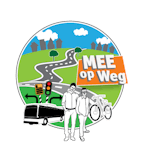Experience training for invisible disabilities (for sports and exercise volunteers)
Contact person
Scan me or visit en.apeldoornpaktaan.nl/o/mee-ijsseloevers/opportunities/Beleeftraining-niet-zichtbare-beperkingen-voor-sport-en-beweegvrijwilligers/85399 to join
Summary
Do you think it is important that everyone can participate in sports and exercise activities? Then this training is interesting for you!Detailed description
Did you know that 1 in 8 Dutch people has a non-visible disability?
Because the limitation is not visible, it is also more difficult to recognize. These people are therefore often over-demanded with all the consequences. Think for example of people with autism, a mild intellectual disability or non-congenital brain injury.
Participating in sports or other exercise activities is not self-evident for them
They sometimes have difficulty understanding and remembering the explanation you give.
Do they sometimes react differently than expected, ask for a lot of attention or no longer participate?
Trainers, coaches and supervisors of (sports) clubs play an important role
By having a different attitude and knowledge about the needs of these people, they can ensure that everyone can participate.
The focus in this training is on experiential learning. Learning by experiencing!
Through various assignments you will experience the challenges that people with a non-visible disability face. From this experience you will discover how you can adapt your communication and behavior to the needs of someone with a disability that you cannot see.
During the training you will talk to an expert who will share important tips with you.
🗣️ Native language skills
About MEE Samen
Sometimes it's nice to have someone to help you on your way. For example, with questions about parenting, care, housing, learning, work, laws and regulations, friends, relationships, sports or money. Someone who thinks along with you and who knows what is possible. And who, together with you, looks at who or what is needed to move forward.
The MEE consultants know their way around and think along with you. They know a lot about living with a disability. For example, a mild intellectual disability, autism, non-congenital brain injury or a chronic illness. They can give you information or advice. See what options are available to you. Going with you to a conversation. Help you make an application. Looking for the right care or care organization together with you. Or, for example, help you if you are dissatisfied. They don't tell you what to do, that's up to you.
For whom?
Anyone can use this support for free. Always. For yourself or for someone in your area. No matter how small or big your question is. The right to this free support is also included in the law. This is called 'independent client support'.

